Embarking on a fitness journey, I’ve often come across the buzz surrounding creatine – the supposed ultimate workout booster. In my exploration, I’ve questioned whether creatine benefits are genuine or just a workout myth.
In this blog, I share insights into my experiences. Have I witnessed a surge in energy for more intense workouts and substantial gains? Let’s uncover this fitness supplement’s truths, myths, and potential side effects. And if you, like me, find adopting a healthy lifestyle challenging, check out my article on why it’s worth the effort.
Creatine has been praised as the ultimate workout booster, but is it really? Are creatine benefits all a hoax or can you really get more energy pumped to your muscles, leading to a more intense workout, and eventually more gains? Let’s find out.
By the way, if you’re struggling with adopting a healthy lifestyle, read our article about why your really should.
What Is Creatine
Creatine is an amino acid, which is a building block for protein. It’s mainly found in meat and fish, but it’s also created naturally by the liver, kidneys, and pancreas.
Once created or consumed, 95% of creatine is then stored in the skeletal muscles where it can be used for energy, while the rest is dispersed between the heart, brain and other tissues.
During high-intensity fast exercises such as bodyweight exercises, sprinting, weightlifting, and more, the stored creatine is converted into adenosine triphosphate (ATP).
ATP is basically fuel for the “fast-twitch” muscle fibers used by the body in these fast intense exercises. It’s actually what causes muscles to contract in order to produce every movement you make, as walking or quickly picking things up is also a form of fast (albeit not intense) exercise.

Those who depend more on “slow-twitch” fibers – long-distance runners and triathletes, for instance – tend to benefit less from creatine supplements.
Where It Comes From
Because the body is able to manufacture creatine from three “building blocks” (amino acids L-arginine, glycine, and L-methionine), it’s not considered an essential nutrient.
As long as your diet includes animal protein like meat and fish (the main source of these amino acids), the body should have sufficient creatine levels. With this in mind, vegetarian athletes could benefit greatly from creatine supplementation.
Exploring alternative sources or considering supplements might be crucial for maintaining optimal creatine levels in a plant-based diet.
Check out our blog The Amazing Benefits Of Salt Soap & Easy DIY Guide. Elevate your self-care game with salt soap!
Creatine Benefits
Improves Cognitive Ability

Creatine supplementation has been considered as a possible therapeutic approach in treating several types of neuromuscular disorders, including Parkinson’s, muscular dystrophy, and multiple sclerosis.
Studies have also shown significant increases in several areas of intelligence through the use of creatine, especially among the elderly.
One test done with 45 young vegetarians in Australia showed a marked increase in both fluid intelligence (ability to think logically and solve problems in new situations) and the ability to see patterns. The subjects were given 5g of creatine a day for 6 weeks.

Although, it’s important to note that some scientists are still undecided as to whether long-term creatine supplementation is completely safe. Others, however, are convinced this is not a problem, especially in relation to muscle cramping and dehydration.
One interesting discovery relates to caffeine. One study, when looking at intermittent, high-intensity work, found that caffeine completely cancels out the athletic effects of creatine supplementation.
Despite this fact, some commonly available supplements – including powdered drink mixes – contain both creatine AND caffeine!
Creatine Benefits For Athletes
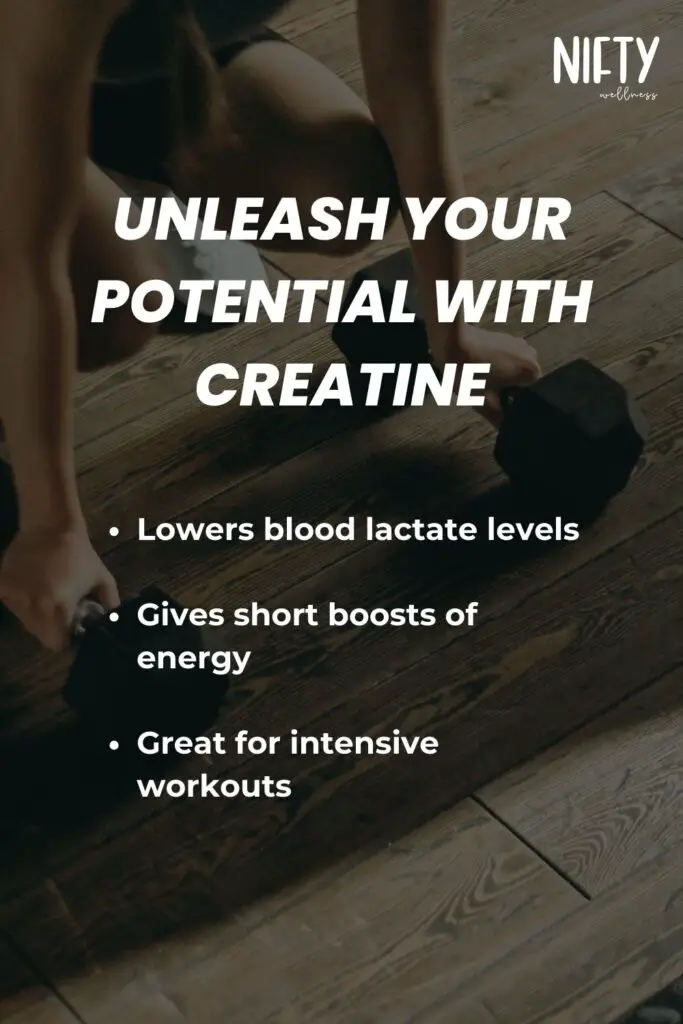
Based on several studies during the past decade, there is a quite a lot of evidence indicating that taking creatine supplemens before doing resistance training leads to increased muscle strength and weightlifting performance. However, results have not always been consistent.
Athletes who see the biggest benefit from creatine supplements are those whose main focus is on short bursts of energy (weightlifters, sprinters, speed skaters, basketball players, etc.).

One reason is that creatine can lower blood lactate levels by up to 20%. And since lactic acid buildup is the main cause of fatigue during intense workouts, creatine supplements can give an added boost to an athlete’s energy level when it counts most.
Creatine benefits are the most pronounced when the athlete is well-hydrated and has sufficient magnesium intake.
Read our blog The Powerful Cistanche Benefits & What It Is. Learn how this ancient remedy can enhance your health journey, offering a holistic approach to wellness.
Possible Side Effects

There are quite a few creatine side effects, but they often depend on conditions. So, a good rule of thumb is to always be well-hydrated and have sufficient magnesium intake.
Creatine potential side effects include:
- Fever
- Nausea
- Diarrhea
- Dizziness
- Muscle cramping
- Gastrointestinal pain
- Heat intolerance
- Water retention
- Dehydration
- Weight gain
As with any supplement, though, getting the correct dosage is also extremely important if you want to avoid side effects. So checking with one’s doctor or other health practitioner is also advised.
Conclusion
In my journey exploring the realms of workout supplements, delving into the creatine landscape has been both enlightening and impactful. As I questioned whether creatine benefits were a mere myth, my experience unfolded through heightened energy in intense workouts, bringing forth tangible gains.
Beyond the discussions on creatine side effects, my personalized exploration underscores its worth in enhancing muscle performance. With its nuances and potential considerations, Creatine stands as a valuable ally in pursuing fitness excellence.
Frequent Concerns & Questions
Creatine Hair Loss

Many people wonder, does creatine cause hair loss? And the simple fact is that it might. One study found that creatine might increase an androgen hormone called DHT.
DHT actually contributes to the growth of body hair in men, but too much of it can shrink your hair follicles, leading to hair loss. If you’re predisposed to hair loss, or unsure about having too much DHT, consult a doctor first.
Creatine Weight Gain

As we’ve mentioned in the side effects section, creatine might cause water retention. Which means the body will gather more fluids to supply the increased energy.
That might cause some temporary weight gain due to the fluids building up. Once you start building muscle, and the body uses those fluids, the weight gain usually goes down as well.
Does Creatine Go Bad?
Creatine does expire, although it might not be as fast as your product’s label says so. Most will claim 2-3 years, but some studies show it can potentially last up to 20 years.
Regardless, even if the expiration date is in question, creatine is safe to consume after expiration and shouldn’t cause any side effects. And if your creatine clumps up, that’s completely normal, simply crumble it back to powder.
Creatine vs Whey
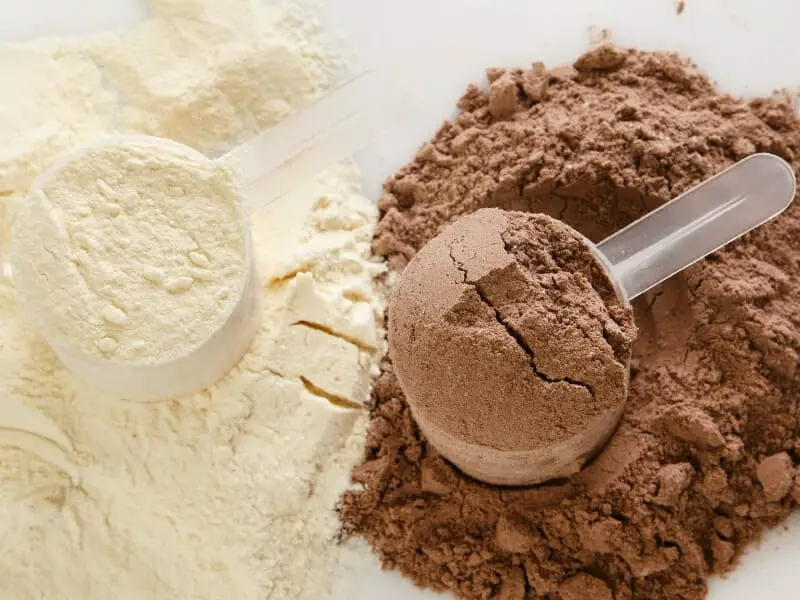
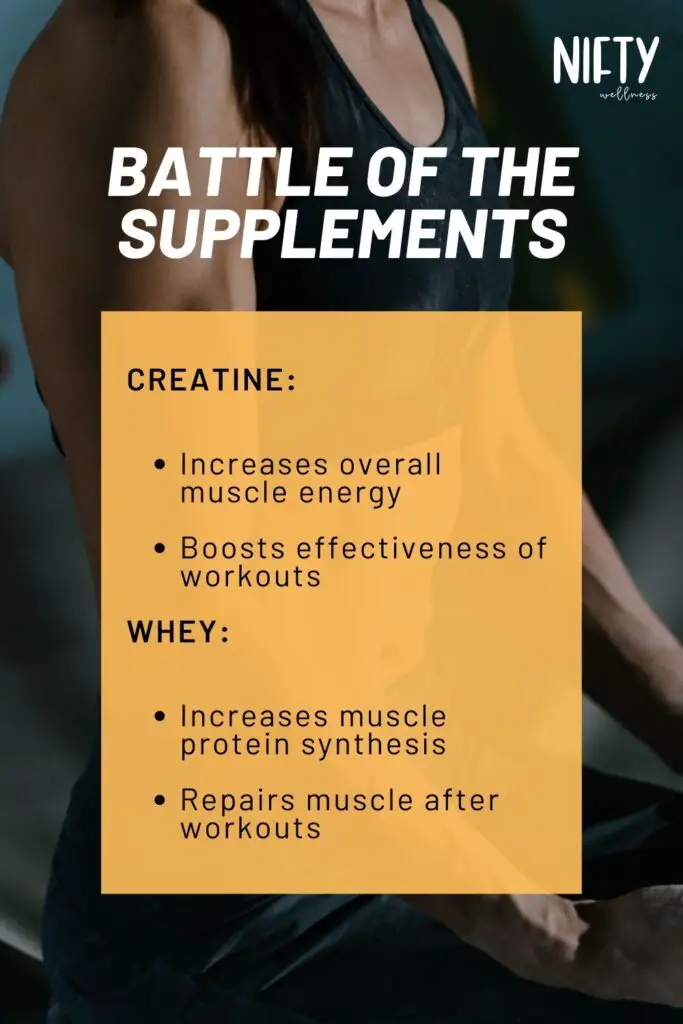
Many people wonder whether creatine is better than whey or the other way around. The thing is, while they both help muscles, they do so in different ways.
Creatine will increase the overall energy a muscle can produce, which means more intensive and effective workouts. In contrast, whey increases the amount of muscle protein synthesis, which is the repairing and building up of the muscles after intense workouts.
Is Creatine Vegan?
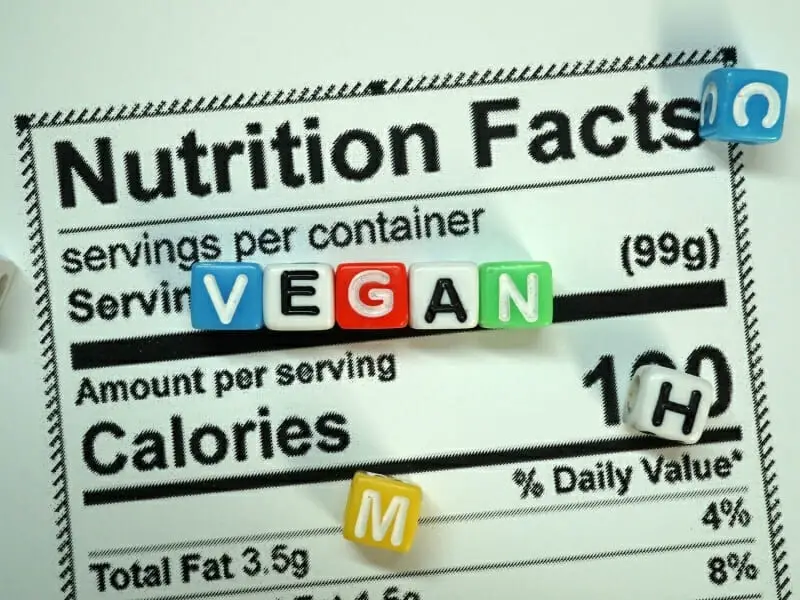
So we’ve mentioned in this article that creatine is naturally found in animal products. But if you’re looking at creatine supplements, you’ll be happy to hear that most products use synthesized creatine. All the benefits, no animals.
Even though 99% of creatine products will be vegan friendly, do make sure to double-check the label.
Is Creatine Worth It?

To make the best decision, you really should go through the article and decide for yourself. But creatine benefits are real. It helps your muscles utilize their energy better, and provides them with more energy.
That means that when you reach the end of your weightlifting set, you’ll be able to push a few more reps or lift just a bit more. Or a lot more, creatine affects everyone differently.
But it definitely affects. Therefore, creatine is worth it.
Creatine Headache
As we’ve mentioned, creatine causes the body to gather up liquids to supply the increased muscle energy. That means that if you don’t make sure to drink plenty of water, you’ll quickly become hydrated, which can cause headaches.
If however you are properly hydrated and still experiencing mild to severe headaches, stop for a few days, and try again with a lower dosage.
Creatine vs Glutamine
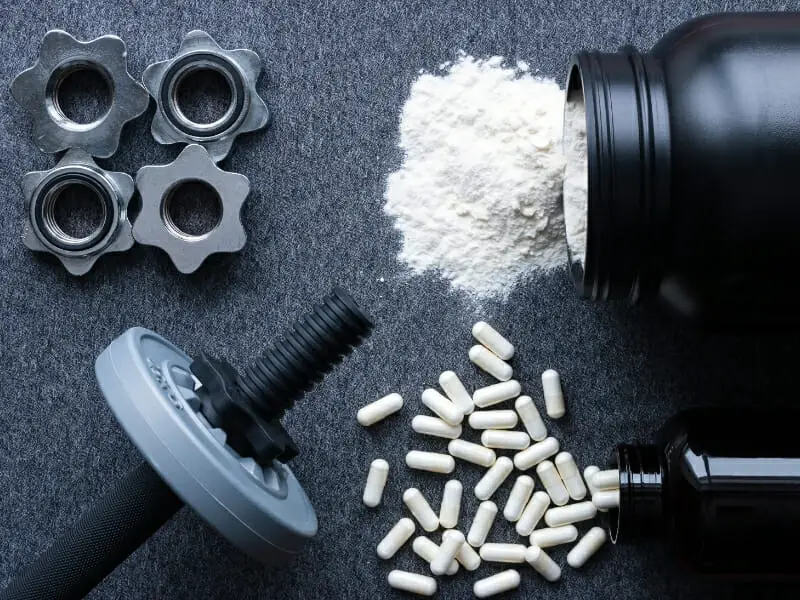
Glutamine is similar to creatine in that it is also an amino acid, but it benefits the gut and the immune system more than muscles. When it comes to muscles, it mostly improves recovery after intense workouts and the function of slow-twitch muscles.
Creatine, on the other hand, benefits mostly muscles and increases the overall energy and functionality of fast twitch-muscles.
That means that glutamine may be helpful for athletes that focus on longer, less intense workouts, who are also looking for added health benefits.
And creatine is for athletes who are looking for more explosive energy in short duration, intensive workouts.
